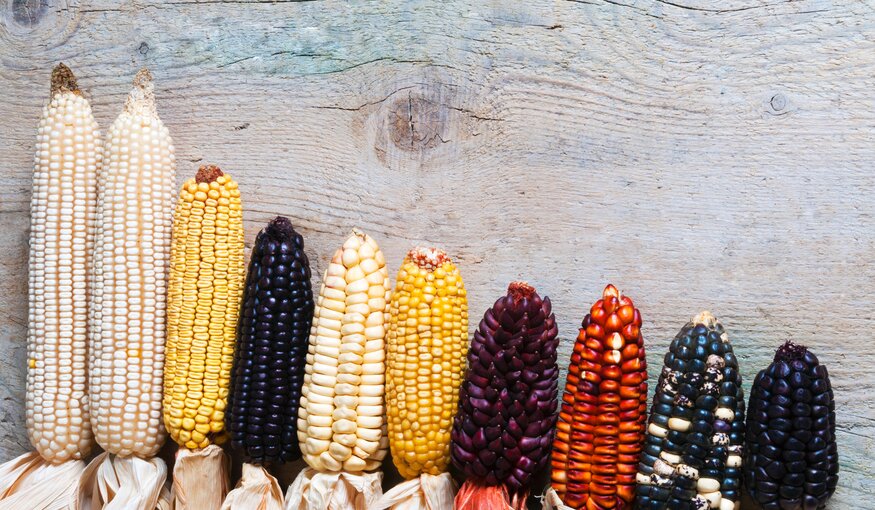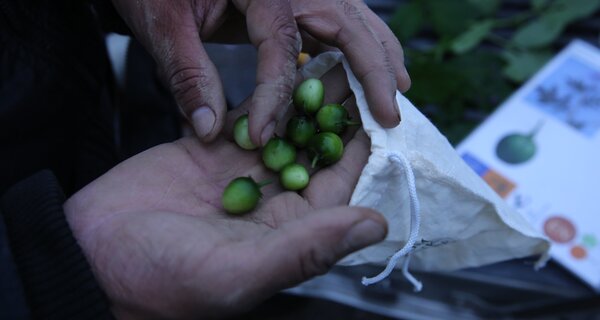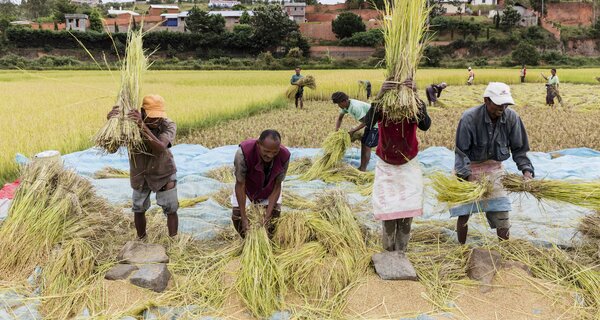Growing our Community of Crop Diversity Supporters
 The Crop Trust has launched a news hub to serve as a one-stop shop for anyone interested in crop diversity conservation and use.
The Crop Trust has launched a news hub to serve as a one-stop shop for anyone interested in crop diversity conservation and use.1 June 2022
“Nothing in science has any value to society if it is not communicated.”
Almost 70 years after American educator and writer Anne Roe made this observation, her message remains as relevant as ever. The job of scientists clearly doesn’t end in the laboratory or the field, but in the minds of policymakers, aspiring students, taxpayers, consumers…indeed, all of us.
The growing public awareness of the dangers posed by climate change, biodiversity loss and food insecurity has triggered rising demand for information. In response, the Crop Trust has launched a news hub, that we hope will serve as a one-stop shop for anyone interested in the point where these crises come together. We call it the Crop Diversity Digest.
While its intended audience includes the genebank community and plant breeders, the Digest is mostly designed for the interested layperson – without the academic jargon and assumptions about prior knowledge that often create roadblocks on the information superhighway.
Multiple Crises
Climate change, biodiversity loss, food insecurity, war and a global pandemic: the need for effective communication and reliable sources of information has never been greater as the world faces crisis upon crisis.
The Intergovernmental Panel on Climate Change recently warned that greenhouse gas emissions must peak by 2025 for the world to have any chance of limiting global warming to 1.5 degrees above pre-industrial levels. And now, with the war in Ukraine, we are seeing an increase in food insecurity, with the Global South being hit the hardest.
This toxic cocktail of crises also highlights the growing importance of conserving crop diversity and using it to make our food systems more resilient, improving the nutritional value of people’s diets and helping boost yields in farmers’ fields.
Food Shortages
With about a quarter of the world’s grain supply from ‘Europe’s breadbasket’ – Russia and Ukraine – now in jeopardy due to war, the pressure on farmers everywhere to help offset food shortages is increasing by the day. To meet this challenge, they will need to plant seeds that can withstand harsh climatic conditions, pests and disease. The genetic diversity found in crop wild relatives and heirloom varieties is a treasure trove of such characteristics.
Unfortunately, crop diversity has declined in 80 percent of the cases where it has been measured, according to academic research covering the last 80 years, and global food supplies have become increasingly homogenous. This is why it is vital to conserve whatever is remaining in the genepool by stepping up collecting efforts and safely storing seeds in genebanks before their valuable traits are lost forever.
Digest Offerings
Through the Crop Diversity Digest, we hope to promote the exchange of ideas, inspire a new generation of scientists, educate a wider audience and inform policymakers about the food challenges of the future.
You’ll be able to hear from a range of voices through opinion pieces written by scientists, farmers, Indigenous People and other stakeholders, get the latest in crop diversity news, inspiring events, podcasts, videos and even recipes for those eager to test their culinary skills.
In addition, readers of the Crop Diversity Digest will have the opportunity to subscribe to our free newsletter: The Dish. Delivered straight to your inbox, it will provide the latest news in crop diversity conservation and use from around the world.
The human ability to solve crises has always depended on our success in communicating with one another. We think crop diversity will be essential in getting us out of our present crises, and indeed avert future ones.
By showing how, the Crop Diversity Digest will bolster the arguments of the convinced, while also helping to persuade the skeptical.
We can’t think of anything more valuable to society than that just now.
Categories: Climate Change, Food Security, Nutritional Security, Sustainable Agriculture




